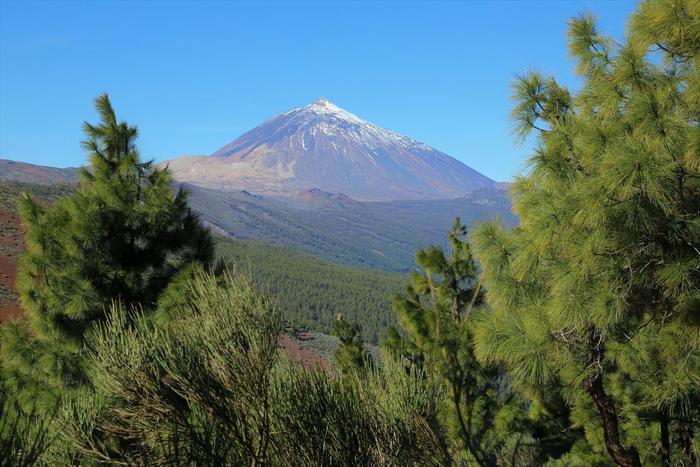Oceanic islands provide useful models for ecology, biogeography and evolutionary research. Many ground-breaking findings – including Darwin’s theory of evolution – have emerged from the study of species on islands and their interplay with their living and non-living environment. Now, an international research team led by the University of Göttingen has investigated the flora of the Canary Island of Tenerife. The results were surprising: the island’s plant-life exhibits a remarkable diversity of forms. But the plants differ little from mainland plants in functional terms. However, unlike the flora of the mainland, the flora of Tenerife is dominated by slow-growing, woody shrubs with a “low-risk” life strategy. The results were published in Nature.

Credit: Holger Kreft
Oceanic islands provide useful models for ecology, biogeography and evolutionary research. Many ground-breaking findings – including Darwin’s theory of evolution – have emerged from the study of species on islands and their interplay with their living and non-living environment. Now, an international research team led by the University of Göttingen has investigated the flora of the Canary Island of Tenerife. The results were surprising: the island’s plant-life exhibits a remarkable diversity of forms. But the plants differ little from mainland plants in functional terms. However, unlike the flora of the mainland, the flora of Tenerife is dominated by slow-growing, woody shrubs with a “low-risk” life strategy. The results were published in Nature.
The researchers investigated how the plants of Tenerife differ in functional terms from plants from other parts of the world. They conducted extensive field research and measurements at over 500 sites using the most up-to-date methods of functional ecology. The sites were scattered all over the island at altitudes ranging from sea level to mountainous regions above 3,300 metres. The scientists recorded about 80% of Tenerife’s native seed plants, and surveyed eight plant characteristics: plant size, specific wood density, leaf thickness, absolute and specific leaf area, leaf dry matter, nitrogen concentration in leaf tissue, and seed weight. They compared their data with data on more than 2,000 plant species found on the mainland.
“Our study shows, for the first time and contrary to all expectations, that species groups that evolved on the Canary Islands do not contribute to the expansion of the breadth of different traits. This means they do not lead to more functional diversity,” explains the lead of the study, Professor Holger Kreft, and Göttingen University’s Biodiversity, Macroecology and Biogeography research group. Previous comparisons show that species occurring on islands can differ significantly from their relatives on the mainland. A well-known example is provided by the Galapagos giant tortoise: the species is only found on the Galapagos Islands and, as a result of adaptation to its environmental conditions, is much larger than tortoises from the mainland. The research team expected similar differences between island and mainland plants, but this was not the case. “Rather, we see that most species follow the constraints of the island climate. Thus, medium-sized, woody species develop. These tend to live with the limited resources and high risks of extinction on the island. That is, they grow slowly. The high functional diversity is mainly due to the species that are widespread on the island and the nearby mainland,” explains Kreft.
“At the beginning of our research, we assumed that island plants would show fundamental differences and would be characterised by rather limited diversity in terms of function due to their geographical isolation,” explains first author Dr Paola Barajas Barbosa. The results are part of her doctoral thesis, which she did at the University of Göttingen. She now does research at the German Centre for Integrative Biodiversity Research in Leipzig (iDiv). “We were all the more surprised to find that the plants of Tenerife have a comparatively high functional diversity.”
Original publication: Martha Paola Barajas Barbosa et al. Assembly of functional diversity in an oceanic island flora. Nature (2023). DOI: 10.1038/s41586-023-06305-z
Contact:
Professor Holger Kreft
University of Göttingen
Biodiversity, Macroecology and Biogeography Research Group
Büsgenweg 1, 37077 Göttingen, Germany
Tel: +49 (0)551 39-28757
Email: [email protected]
https://www.uni-goettingen.de/en/128741.html
Journal
Nature
Subject of Research
Not applicable
Article Title
Martha Paola Barajas Barbosa et al. Assembly of functional diversity in an oceanic island flora.
Article Publication Date
12-Jul-2023




